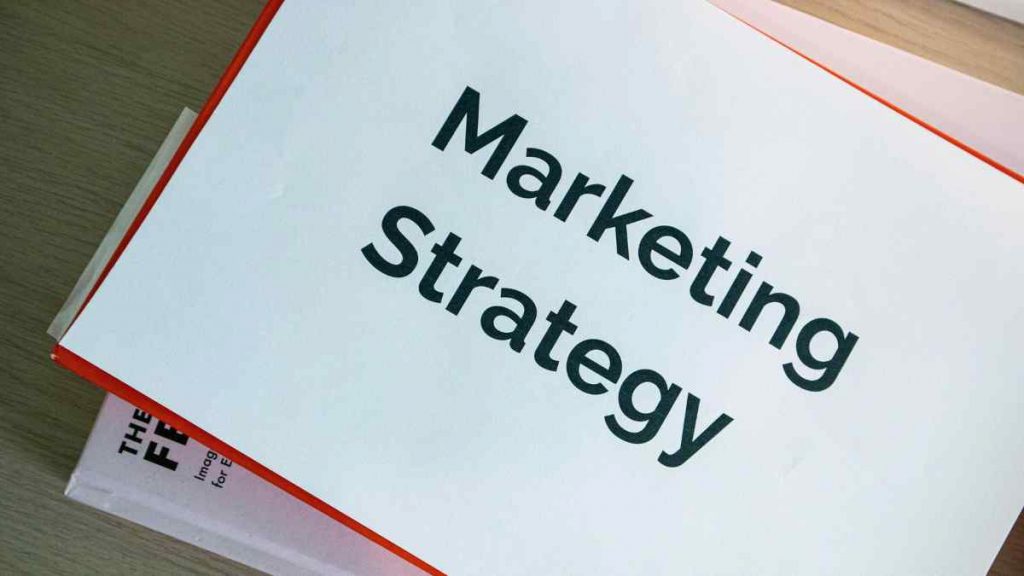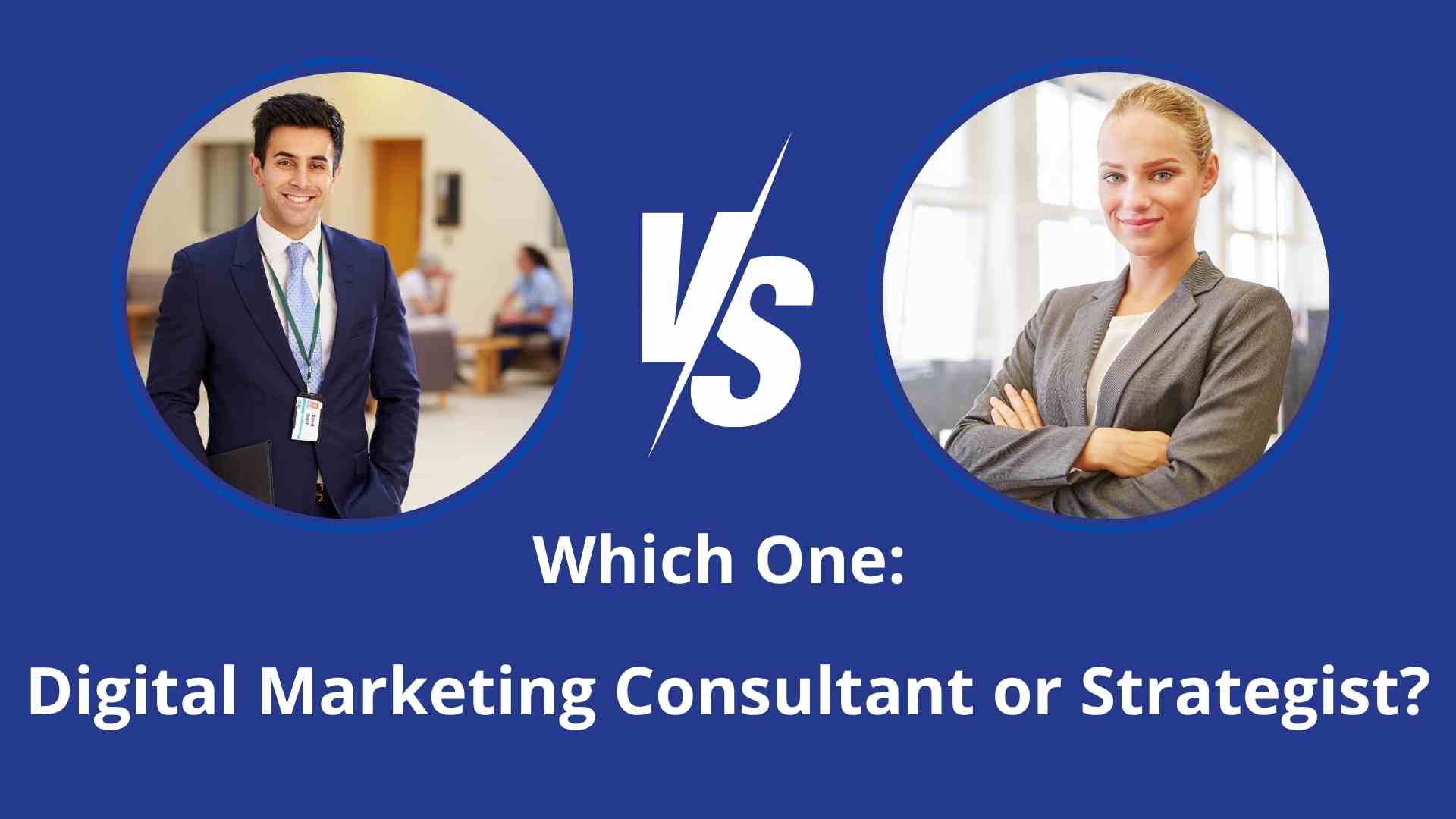Many small business owners reach a point where doing it all becomes too much – SEO, Google Ads, newsletters, website updates, and social media content. It’s a lot. You’ve probably tried a bit of everything, but the results aren’t clear, and neither is the next step. That’s when you know it’s time to get help.
But knowing what kind of help to get isn’t always obvious. Should you bring in a digital marketing consultant to assess what’s going wrong, or do you need a digital marketing strategist to build and lead a proper plan going forward?
In this article, we break down the difference between the two, not as job titles, but as practical solutions. By the end, you’ll know what’s right for your business, your budget, and your stage of growth.
What Is a Digital Marketing Consultant?
A digital marketing consultant is the specialist who steps in when you need someone to spot what’s going wrong and fix it. They bring fresh eyes, hands-on experience, and up-to-date knowledge of platforms like Google Ads, Facebook, and email tools – all focused on getting you results that actually matter to your bottom line.
A digital marketing consultant doesn’t take over your entire marketing strategy. That’s not their job. Instead, they zero in on the specific problems that are stopping you from getting the leads and sales you need. Some focus on one area, others cast a wider net. But they all do the same thing at their core: they fix, improve, or set up the parts of your marketing that need urgent attention.

Key Responsibilities of a Digital Marketing Consultant
Here’s how a digital marketing consultant typically helps small businesses:
- Campaign Setup and Management: Struggling with Google Ads or Facebook campaigns that eat your budget but don’t deliver? A consultant can handle everything from initial setup to ongoing management. They’ll write the copy, set the targeting, manage your budget, and keep a close eye on performance. This is especially valuable if you’ve tried running campaigns yourself but didn’t get the results you hoped for.
- Website Optimisation: Your website might look fantastic, but if visitors aren’t converting into customers, something’s not right. Consultants identify what’s stopping people from taking action – things as slow loading times, confusing navigation, or missing key information – and help you fix it.
- Content and Email Marketing: They can create compelling content for your key pages and develop email sequences that speak to your audience. Consider a welcome series for new subscribers or follow-up emails sent after someone downloads your free guide.
- SEO Support: If people can’t find your website when they search for what you offer, you’ve got a problem. Consultants check whether you’re using the right keywords, tidy up your pages, and fix technical issues that might be hurting your search rankings.
- Analytics and Performance: Not sure which of your marketing efforts are bringing in customers? A consultant can set up proper tracking systems and explain the results in plain English, so you know exactly where your leads and sales are coming from.
A digital marketing consultantis ideal when you need fast, focused help on specific marketing tasks, especially when you don’t have the time, tools, or know-how to sort it out yourself.
What Is a Digital Marketing Strategist?
A digital marketing strategist looks at the bigger picture – your products, your audience, your current results – and creates a clear, realistic plan for what to do next. They’re not here to write your social media posts or manage your ad campaigns (unless they offer both services). Their job is purely strategic: setting the direction so you can stop spinning your wheels.
Think of them as your marketing GPS. Instead of taking random turns and hoping you’ll end up somewhere useful, they map out the route from where you are now to where you want to be.
If your marketing feels scattered, or you’re constantly wondering “what should I be doing next?”, a digital marketing strategist brings the clarity and structure you need to move forward with confidence.

Key Responsibilities of a Digital Marketing Strategist
Here’s how a digital marketing strategist typically helps small businesses get their marketing sorted:
- Creating a Clear Marketing Plan: They’ll review what you’re currently doing, spot the gaps, and build a plan based on your actual goals, resources, and priorities. No more guessing what to focus on.
- Defining Your Audience and Message: Who exactly are you trying to reach, and what do they care about? Strategists help you get crystal clear on your ideal customers and how to speak their language. This often involves customer research and competitor analysis that brings real focus to your messaging.
- Mapping the Customer Journey: They break down how people discover your business, what influences their buying decisions, and where potential customers might be dropping off. This helps you focus your efforts on the right touchpoints at the right time.
- Making Your Message Consistent: If your brand message feels unclear or all over the place, a strategist helps you nail down what to say, how to say it, and where to say it. The result? Your business feels more professional and trustworthy.
- Choosing the Right Tools and Channels: Should you focus on SEO or paid ads? Do you need that expensive CRM system? Strategists help you pick the tools and marketing channels that make sense for your business and budget.
- Building Measurement into Your Plan: Once your strategy is rolling, they help you identify the right metrics to watch and create simple reporting systems. This means you can spot opportunities and problems early, rather than flying blind for months.
You don’t need a strategist for every marketing task. But when you’re trying to grow, launch something new, or just bring order to the chaos, they give you the structure and direction to do it right.
How to Decide: Digital Marketing Consultant, Strategist, or Both?
The choice between a digital marketing consultant and strategist depends on your current situation, resources, and goals. Use this simple checklist to figure out what’s right for your business.
You need a digital marketing consultant if:
- You’re running ads but not seeing results
- Your website gets traffic but isn’t converting
- You want help fixing something fast
- You don’t have the time (or desire) to manage campaigns yourself
You need a digital marketing strategist if:
- Your marketing feels disconnected or scattered
- You’re planning something big, like a new offer, rebrand, or expansion
- You already have someone running campaigns, but need better direction
- You’re ready to think long-term and build something more sustainable
You might need both if:
- You want someone who can plan your strategy and carry it out
- You need support across both planning and execution
- You’re growing quickly and want joined-up support without building a full team
Some professionals offer both. They can create a strategy tailored to your goals and then manage the work that brings it to life. This hybrid approach works especially well for small businesses that need flexibility without hiring multiple people.
Working Well with a Digital Marketing Partner

Whether you hire a digital marketing consultant, a strategist, or someone who does both, how you work together matters just as much as who you choose. The best partnerships are built on trust, clarity, and communication, and it all starts with choosing someone who genuinely understands your business.
Here’s are some things you might want to consider:
Red Flags to Avoid
Cookie-cutter proposals – If someone sends you a quote or package before learning about your goals, audience, or brand values, that’s a red flag. You need a marketing partner who’s curious about your business, your customers, and what makes you different. The right person won’t just push tactics. They’ll take the time to understand what matters to you and help you communicate that online.
Overnight results? Probably not! – “Double your traffic overnight” or “guaranteed 500% ROI” without understanding your current situation? That’s not marketing – that’s wishful thinking. Quick fixes rarely lead to lasting results.
Keeping you locked out – You should always have access to your own accounts – website, email, analytics, ads, the lot. If someone says, “We’ll handle everything, you don’t need access,” that’s a massive red flag. Your business belongs to you.
Speaking in riddles – You don’t need to understand every marketing term, and you shouldn’t be made to feel like you do. A good partner will explain things clearly and make sure you’re always in the loop. If you leave a meeting more confused than when you joined, they’re not the right fit.
What Good Partnership Looks Like
They ask before they act: The right person will want to understand your business, your customers, and your goals before suggesting anything. They’ll be genuinely curious about what makes you different.
Clear communication: You’ll get updates in a language you can understand, not pages of confusing data. And when you have questions, you’ll get straight answers, not more jargon.
Realistic expectations: They’ll tell you the truth about what’s possible and how long things take. Some improvements happen quickly; others take months to build momentum. They won’t promise magic.
You stay in control: You’ll always have access to your accounts and understand what they’re doing. Good partners want you to feel informed and involved, not sidelined.
How to Set Things Up for Success
Be ready to share: Even brilliant marketers can’t work with their hands tied. Have your website login, analytics access, and social media accounts ready to share. The more organised you are, the faster they can help.
Stay patient but engaged: Marketing isn’t magic. Building real, consistent growth takes time. But that doesn’t mean sitting back and hoping for the best. Stay involved, ask questions, and make sure you understand the plan.
Trust but verify: You want someone who tells you the truth, not just what you want to hear. If something isn’t working, they should tell you and have a plan to fix it.
Remember – the right digital marketing partner will make you feel more confident about your marketing, not more confused. They’ll care about your success because your success is their success.
Final Thoughts
Most small businesses wait too long before asking for help with their marketing. They struggle alone, trying to figure out what isn’t working, hoping things will somehow get better on their own.
The truth is, getting the right support at the right time can completely change your business trajectory. But it starts with being honest about what kind of help you need and then finding someone who genuinely understands small businesses like yours.
In Social Matrix, we’ve worked with hundreds of small business owners who felt stuck, scattered, or simply overwhelmed by their marketing. What we’ve learned is that the best results come when you have someone who can both see the bigger picture and roll up their sleeves to fix what’s broken.
If your marketing feels like it’s holding your business back rather than helping it grow, you don’t have to figure it out alone. Reach out, and let’s talk about what kind of support will actually move your business forward.

